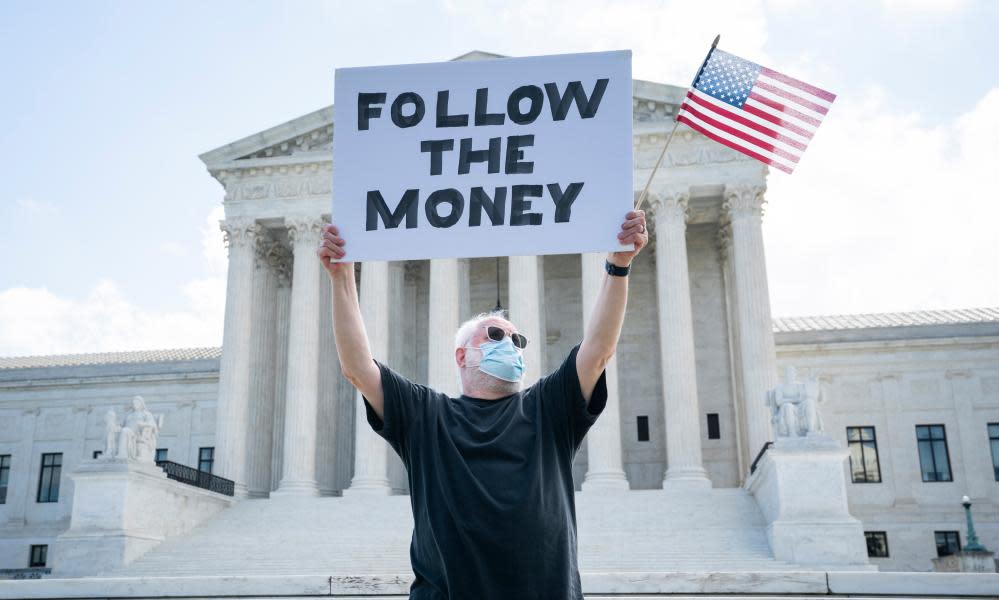'It's not fair': workers outraged that Donald Trump pays less tax than them

Malcum Salyers, an electrician and volunteer firefighter in Jonesville, Ohio, works on average 55 to 60 hours a week. In just over two weeks he pays more tax than the president of the United States.
Related: $70,000 on hairstyling – Donald Trump's taxes in numbers
This week the New York Times reported that Donald Trump paid only $750 in federal income taxes in 2016 and 2017, and paid no income tax in 10 of the past 15 years. The investigation comes after Trump refused to disclose his tax returns for years, breaking a several-decades-long precedent of presidential candidates releasing their tax returns.
“I paid millions in taxes,” Trump said on Tuesday night during his debate with Joe Biden. He declined to give a specific figure before adding: “I don’t want to pay taxes.”
“It’s disheartening to see what I pay in taxes in comparison to what Trump paid,” said Salyers, who on average pays about $350 a week in federal income taxes, about $18,000 a year, and only receives an annual tax rebate of about $1,000, while currently paying to put his daughter through college. “The tax rates are 100% unbalanced.”
As Trump has paid virtually no federal income taxes in the past 15 years, US workers who pay much more in taxes, are struggling to make ends meet and dealing with the pandemic in essential jobs.
David Yolmeh has worked as a meat cutter in a grocery store deli outside Orlando, Florida, for 10 years. Over the past three years, he has paid between $2,200 and $4,700 in annual federal income tax.
“It’s crazy thinking about how long I’ve been wearing a mask to work every day now,” said Yolmeh. “We are on a strict cleaning schedule to keep all touched surfaces sanitized for customer and employee safety. We have the markers. We have the barriers for our cashiers. What we didn’t get was any sort of hazard pay or temporary pay increases. Sales increased dramatically in the first month of lockdown and we received none of those profits back.”
In Port Huron, Michigan, Henry Dunham, 41, has worked as a chef for 20 years and paid about $17,000 in federal income taxes over the past 20 years. He was laid off from his job at a hotel restaurant when the pandemic hit and is still waiting to receive unemployment benefits.
“I can’t receive unemployment because reaching the office here in Michigan is impossible. I have months of unpaid claims now, and all the information I can get on the website are non-monetary issues, even though they show over $10,000 in due payments,” said Dunham, who had never had to file for unemployment before the pandemic. “I’m frustrated Trump pays less in taxes than I do. I’m close to the poverty line. But I pay taxes out of my paychecks with no possible way to defraud the IRS. Yet here is a supposed billionaire, who has paid less than I, in the past 20 years cumulatively.”
One New York-based landscaper said the news didn’t surprise him. The Guatemalan worker, who did not want to be identified, said he pays about $8,000 a year in state and federal taxes, taken out at source.
“He doesn’t pay taxes? That’s good for him. But it is not fair. It’s not good. But that’s how it is. The big shark eats the little shark. If we don’t pay taxes, they want to kick us out.”

